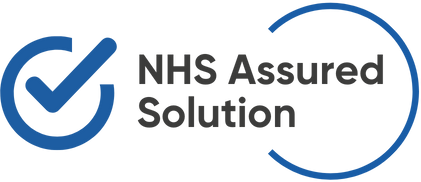5 software features you should be using to manage your home care business
When it comes to managing a home care business, care coordinators and registered managers can be pulled in many directions. Not only are they managing the delivery of care to clients, but are also in charge of managing the human resources associated with the business.
This can often involve complex processes and responsibilities like payroll, invoicing, personal development, training and qualifications, wellbeing, mileage processing, sickness, holidays and service user questions.
That’s why care management software is so important as it includes all the tools required to run a successful and healthy care business.
Managing your people and processes
- Mini-CRM. Known as a customer relationship management tool, a CRM allows users to view business-critical information at a glance, including unallocated visits, new messages from service users, staff training renewals and care plan review dates. It shows these tasks in a logical to-do list for a care manager to follow – prioritising the most critical tasks first.
- Carer records. Just as important as Client records – carer records offer a comprehensive place to log all staff information such as qualifications and training, recruitment and employment details, equipment log, pay, and personal details. The greater the amount of information added to a carer record the more it can be used to help provide a fulfilling and rewarding work experience. Got a carer that wants to utilise their linguistic expertise with clients? Use carer records to document skills and experience so that they can be holistically matched with the most appropriate clients.
- Key dates. Receive alerts that correspond with the information inputted within a carer’s record. This can help remind managers when appraisals are due or when qualifications are about to expire. This assists with the management of employee development and ensures that staff feel valued and supported. By looking after staff and supporting wellbeing, retention can be improved.
- Staff management. With a care management system, you can say goodbye to the many different staff management forms you may have been stuck using in the past. Everything logging sickness and training, recording details of incidents and issues, and performing follow-up and monitoring can be completed within the system.
- Payroll and invoicing. View and approve timesheets, make payroll calculations, process mileage and export to accounting systems such as Sage and Quickbooks. This can help to ensure that carers are paid on time, mileage is paid accurately and invoices are collected professionally, which can help retain staff and ensure that the business is operating efficiently and successfully.
Want to know more about what care management software can do for your home care business? Take a look at our blogs that look specifically at planning, delivery and monitoring benefits.
IQ:caremanager has been designed to assist care teams and carers with providing outstanding levels of care without the complexity of software processes getting in the way. In essence, it takes away the heavy lifting of mundane administration obstacles, freeing up more time for meaningful care.
Learn more about our innovative home care software.

